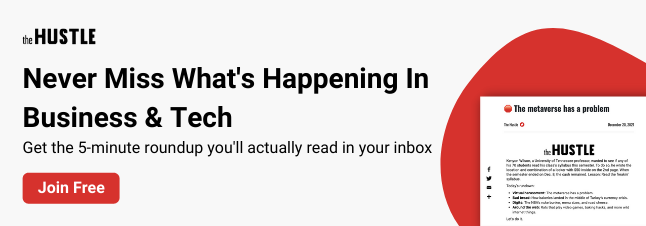The free market economy has been a hot topic since the concept was first developed over 250 years ago. The term gets thrown around frequently, often incorrectly, as a synonym for capitalism.

While many people believe the US is the world’s leading free market, the American economy is more restrictive than some other countries’ economies. As an entrepreneur, you need to understand how the free market economy affects startups and small businesses.
What is a free market economy?
A free market economy is one where the supply and demand of a market is not controlled by the government or any other regulating body. This means no taxes, tariffs, quotas, or external quality-control checks.
This system is viewed as one in which each factor of the economy regulates the others. Prices, wages, and other exchanges of goods and services are determined by market forces and self-interest. The implication is that the price will increase if there is a greater demand for a product. Likewise, if there is little demand, prices should decrease.
A free market economy is also described as laissez-faire, or “let them do” in English, an economic system where government intervention is frowned upon. These ideas were popularized in America by followers of 18th-century Scottish economist Adam Smith.
This system is in contrast to a command economy, where prices and quotas on goods are determined by the government.
In a free market economy, business owners can set prices themselves. In theory, there are fewer external factors to account for when determining prices, so you don’t need to factor in tariffs or pay attention to market caps.
Customers can benefit because there is often increased competition. With fewer barriers to entry, more businesses open to meet demand. While customers might pay more for an item when demand is high, businesses can increase production to up the supply, meaning prices go down faster as well.
Common constraints to the free market economy
Occupational licensing
An occupational license is any license you need in order to have a specific job. According to the Bureau of Labor Statistics, occupational license requirements that vary by location can affect where people live and work.
Michigan, for example, requires three years of training to become a licensed security guard, while North Carolina only requires 16 hours. This means businesses will have a much easier time finding and training guards if they are in North Carolina.
Price controls, tariffs, and taxation
Almost all countries have some form of taxation and tariffs on goods and services, which can affect the price of finished goods.
Sometimes there are also price controls, which are government regulations that limit what you are allowed to charge for a particular good or service. In some cases, government subsidies pay producers to change production to help control supply and pricing. These controls are usually placed on essential goods and services such as food, utilities, and even rent.
While these can help consumers in the short term, they can also discourage new businesses from entering a market. These controls can also lead to an increase in black-market goods.
Illegal goods
Governments often forbid or restrict the sale of certain goods to protect the health of consumers, follow social norms, and to protect the intellectual property rights of businesses and individuals. For example, competing businesses can’t sell copies of a product another company has a patent on.
Health and safety rules can forbid dangerous substances like heroin or normally safe foods with unsafe items added to them, like Kinder chocolate eggs.
Monopolies
Monopolies form when one company controls an entire market. In many places, utilities are run as a monopoly, with one water or electric provider servicing an entire city or county.
These can be useful in cases like airports, where strict rules and regulations mean heavy oversight is required. However, in most markets, monopolies don’t benefit consumers and artificially raise prices while lowering service quality.
Examples of a free market economy
Textbook example
In a pure free market economy, the laws of supply and demand are the main driving factors, with no government intervention.
For example, say that Tammy wants to open an ice cream store. In a free market economy, her only barriers to entry are the prices of raw materials, finding a store to rent, and paying staff if she needs help running her store.
Tammy doesn’t need to worry about health codes, price controls on dairy, state regulations, permits, or having to pay business taxes.
Real-world application
In the real world, no country has a totally free market economy. Just think of the example above. Most governments set cleanliness standards for maintaining the ice cream and equipment to protect consumers from foodborne illnesses.
There are a lot of variations between countries in how free their economies are. According to the Heritage Foundation’s 2023 Index of Economic Freedom, Singapore has the freest economy in the world, while the US only ranks 25th because of much stronger consumer protections, complex taxes, tariffs, and other regulations such as interstate commerce rules.
Navigating the free market as an entrepreneur
How free an economy is can have a big impact on businesses in everything from how difficult it is to enter a market to what your profit margin will be.
Few barriers to entry
One of the greatest incentives entrepreneurs have in a free market economy is the low barriers to entry. While this can increase the chances that some businesses won’t succeed because they form without support or training, it’s also a system that rewards hard work and creativity.
“This characteristic empowers individuals to bring their concepts to fruition, fostering an environment ripe for innovation. Yet this dynamic also necessitates constant evolution and differentiation to stand out amidst the sea of competitors,” notes Bader Chowdry, CPA and founder of accounting firm Insight Accounting.
The invisible hand (laissez-faire)
In capitalist economies, economists will talk about an “invisible hand” helping to regulate the market. This is the idea that even without government control, things like wages and prices will naturally adjust to meet demand.
The theory helps to explain why certain jobs are paid above minimum wage. After all, the more money a business owner offers, the larger the pool of job applicants will be. And in sectors with high demand, more entrepreneurs rush to start businesses.
Pricing
The free market economy allows businesses to charge the most that customers are willing to pay, much like a capitalist system.
“In a capitalist system, profit maximization is the overarching goal of every business. In many circumstances, firms will put profit ahead of employee welfare, environmental protection, and even ethical conduct,” notes Ryan Steinolfson, owner of Accelerate Your Marketing, a digital marketing firm.
However, the free market can be self-regulating. If companies continually overcharge, produce unsafe products, or are otherwise objectionable to consumers, competitors will launch new businesses to fill the gaps.
What sells
The free market means that what sells is determined by the market. Try out new ideas and see what strikes a chord with your customers. You might find some ideas don’t really connect, while others might surprise you.
Taking the leap and experimenting is often rewarding for entrepreneurs in a free market economy.




 (1).png)
 (1).png)

